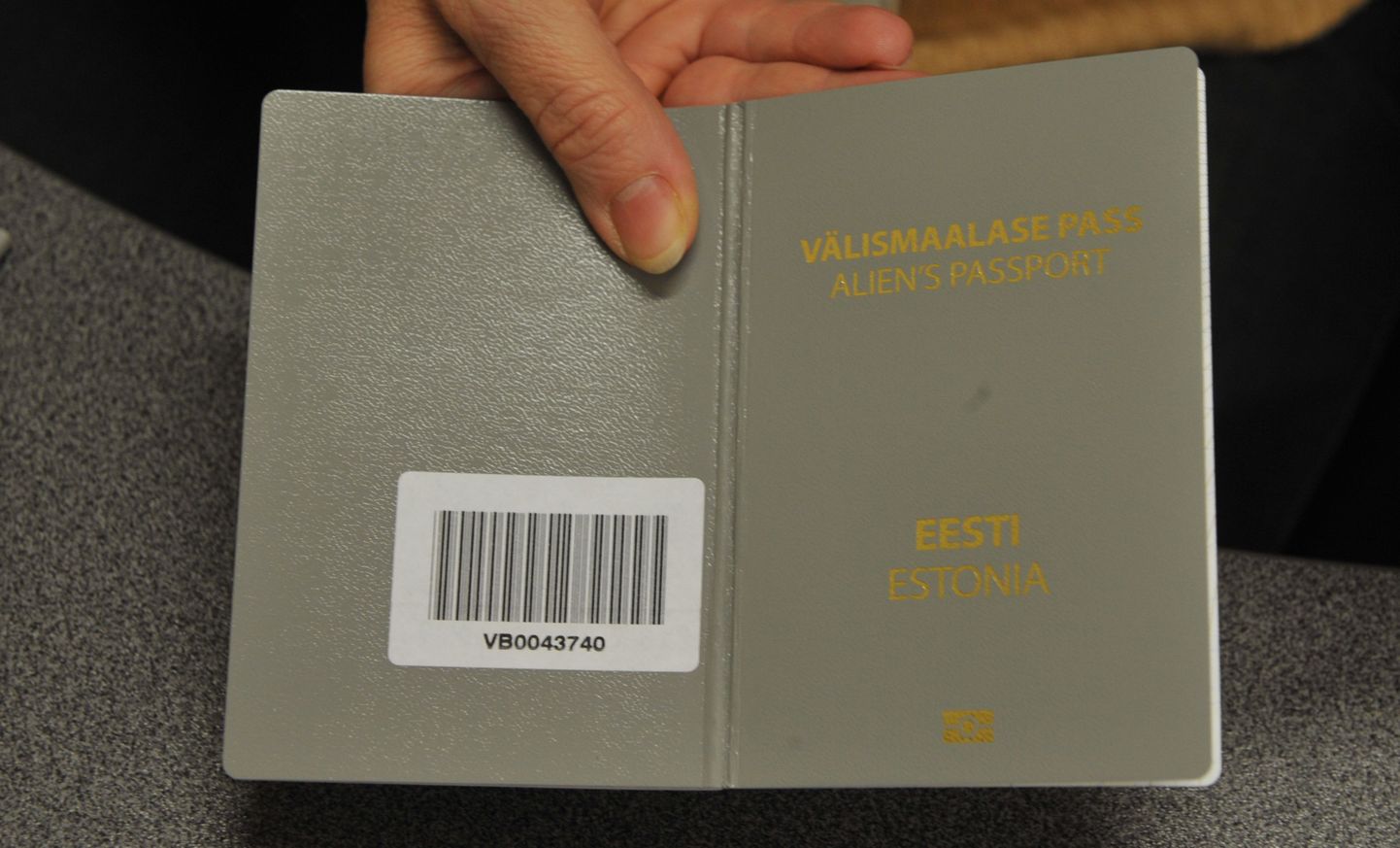
A man in Narva with Estonian citizenship of 12 years, having given up Russian nationality to obtain it, was – in the blink of an eye – turned into a grey passport holder with temporary residence permit.

A man in Narva with Estonian citizenship of 12 years, having given up Russian nationality to obtain it, was – in the blink of an eye – turned into a grey passport holder with temporary residence permit.
After nine years of work in security companies, Arkadi Harakk (39) lost his job. The reason? Pursuant to law, a security guard is supposed to have citizenship or permanent residence permit. Arkadi, at the moment, having none.
Faulty decision
On the basis of nationality at birth, Arkadi Harakk, in 1999, received his first passport at Citizenship and Migration Board’s Narva bureau. During the following ten years, his passport was repeatedly exchanged for a new one, without any problems.
According to Arkadi, his father, being a Finn, claimed to be a citizen of Estonia according to his roots. Still, in 1998, for some reason he formalised citizenship on the basis of naturalisation. In June 1999 Harakk Senior died, not seeing his first Estonian passport. Arkadi, however, in the same year obtained nationality pursuant to birth.
«Back then, it was me, my brother, sister, nephew, and sister-in-law who got the citizenship,» said Mr Harakk. «To all the rest is was said that as they live in Russia, they need not give up Russian citizenship. But I had to give it up, as I was registered in Estonia. I did as I was told…» The man assures he has always heeded to the officials orders.
The fact of there being no basis to grant Arkadi and the four persons close to him nationality at birth only surfaced over ten years later – in February, 2011, during procedures at Police and Border Guard Board. The Estonian passports of all five were proclaimed as issued with no basis, citizenships thus cancelled.
In Estonia, «temporarily»
Mr Harakk became a stateless person, having given up Russian citizenship. In addition to the grey passport, he now had to apply for a five-year residence permit – in his native Estonia.
Arkadi says he has always been a good citizen: he worked, he voted. Now, he is shocked by the state’s sudden decision.
«Should I now apply for political asylum, in Russia?! I have really been loyal to Estonian state – always.» Arkadi is upset at the officials: «They do as they please: if they like you, you get citizenship. If not – they remove it...»
He did try to defend his right not to hand over the passport for a mistake made by someone in the past. «Basically, I was accused of fraud – should I now hide my head under the sand, as an ostrich?»
Arkadi addressed the Chancellor of Justice, Indrek Teder. The latter found nothing illegal in the officials activities. However, in January 2012, Mr Teder proposed to Riigikogu that amendments be made in Citizenship Act, for it to conform to the Constitution. At that time, the chancellor was processing at least two application of that same nature.
In Mr Teder’s opinion, the law in force back then violated the constitutional foundations of legitimate expectation and fundamental right to equality. The chancellor found that, pursuant to principle of legitimate expectation, whosoever may order his/her life in the knowledge that the rights and obligations are permanent and the state will not be able to freely administrate changes to people’s disadvantage.
State correcting mistakes
Legislators heeded the chancellor’s advice: the amended Citizenship Act section 32, whereby citizenship is granted to persons to whom citizenship has been awarded by mistake, entered into force in August 2012.
Exceptions being when the persons concerned have committed offences or knowingly submitted false information while formalising citizenship.
Also, State Fees Act now contains a clause pursuant to which, in cases of unfair cancellation of citizenship, people will be granted new documents without a state fee, as well as compensation expenses already incurred to obtain residence permit etc.
According to Riigikogu member Jevgeni Ossinovki, the Arkadi Harakk case is far from being a rare exception – we may be talking about a hundred people or more. With the first two months after the amendment, 41 citizens got their passports back.
Arkadi, however, does not want his citizenship back any more. All he wants is the permanent residence permit which he had while being a Russian citizen. «Also, I want compensation for the strain on my nerves, and for losing my job,» says the resentful man.